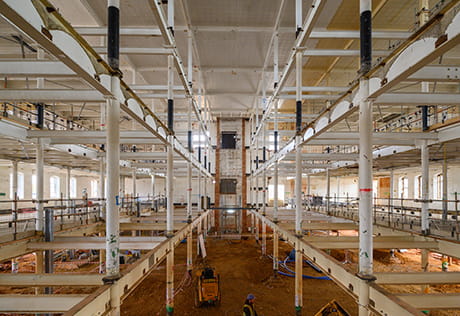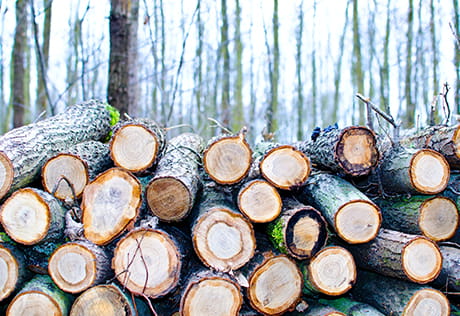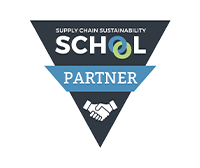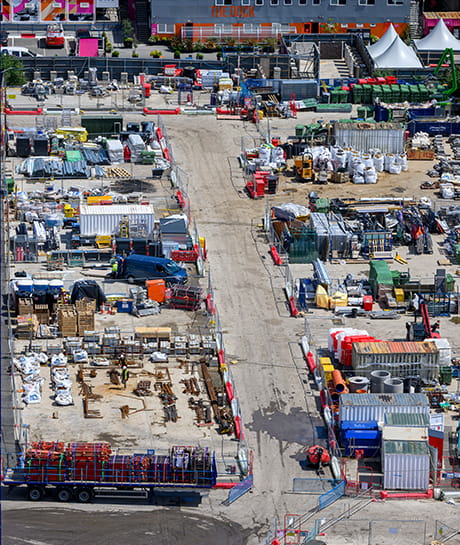Resources
98%
sustainably certified timber and wood-based products
96%
total waste reused or recycled
10%
reduction in water consumption compared to 22/23
Each year, the construction industry consumes nearly 400 million tonnes of materials and produces approximately 100 million tonnes of waste. It is the UK’s largest consumer of natural resources and accounts for around a third of UK waste production.
Berkeley recognises the role the construction industry has to play in reducing resource use and cutting waste and is committed to using resources responsibly, including tackling waste production, reducing our water use and sourcing our materials responsibly.
This year, we have launched our new Waste Strategy, which focuses on minimising the waste we generate, maximising the reuse and recycling of waste and on raising customers’ awareness of resource efficiency and waste minimisation.
Waste Production

Berkeley aims to preserve resources by embedding efficient resource use and waste minimisation practices in its day-to-day processes. We have rolled out a new software to track waste generation and materials across all live projects, to help us have more oversight and control over the resources we use and the waste we generate.
We have developed a Waste Strategy, focussing on preventing the generation of waste, to achieve Zero Avoidable Waste in 2030, driving circular economy models, increasing reuse and recycling rates and advocating resource efficiency with our customers.
We are also exploring ways to increase contractors’ accountability and ownership of waste, which is proving effective to reduce waste and increase segregation.
Water Usage
We closely monitor water usage to understand trends and have produced resources and tools to help teams reduce their consumption. We set water budgets for our sites and offices, which give an allowance for water consumption that is calculated using a percentage reduction to the previous year, prompting our teams to look for opportunities for continuous improvement.
Timber Certification
We implement measures and processes to ensure we achieve our target, from reviewing specifications to checking materials brought to sites and visiting our suppliers’ manufacturing and storage facilities to check the timber they use. We also share lessons learned across the business from any non-compliances identified in our reviews.
We have introduced a new material tracking software across our sites, enabling us to capture data on all deliveries to sites as they take place. By flagging up non-compliances automatically, the software will allow us to take corrective actions before products are installed.

Supply Chain Engagement
At an early stage we engage our designers and consultants to design out waste from our developments, for example by retaining existing structures and reusing materials already available on site. We also challenge teams to achieve better resource efficiency via design and by selecting appropriate construction technologies.
During tendering and construction, we work with key suppliers and contractors to collaborate and develop more efficient practices for material use and waste minimisation.
We are a partner of the Supply Chain Sustainability School and members of their Homes and Waste & Resource Use working groups, which are important forums to share experience and work with contractors, suppliers and other housebuilders to drive performance improvements across the value chain.

